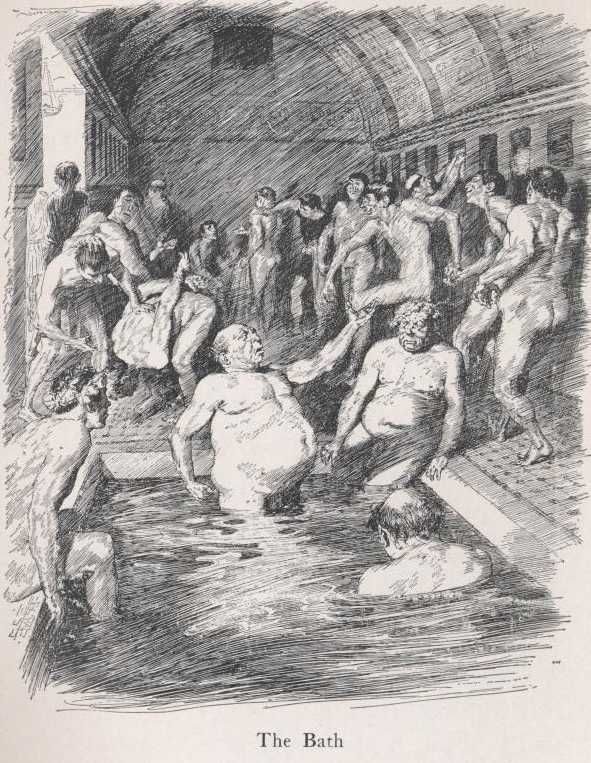 Recently I have been reading the Roman writer Gaius Petronius (ca. 27 CE—66 CE). Of him the historian Tacitus says that “he spent his days in sleep, his nights in attending to his official duties or in amusement. By his dissolute life he had become as famous as other men by a life of energy, so that he was regarded as no ordinary profligate, but as an accomplished voluptuary. His reckless freedom of speech, being regarded as frankness, procured him popularity. Yet during his provincial government, and later when he held the office of consul, he had shown vigor and capacity for affairs. Later he returned to his life of vicious indulgence, became one of the chosen circle of Nero’s intimates, and was looked upon as an absolute authority on questions of taste [elegantiae arbiter] in connection with the science of luxurious living.” The kind of adviser on culture and fashion prominent politicians who want to look well on TV often maintain to the present day.
Recently I have been reading the Roman writer Gaius Petronius (ca. 27 CE—66 CE). Of him the historian Tacitus says that “he spent his days in sleep, his nights in attending to his official duties or in amusement. By his dissolute life he had become as famous as other men by a life of energy, so that he was regarded as no ordinary profligate, but as an accomplished voluptuary. His reckless freedom of speech, being regarded as frankness, procured him popularity. Yet during his provincial government, and later when he held the office of consul, he had shown vigor and capacity for affairs. Later he returned to his life of vicious indulgence, became one of the chosen circle of Nero’s intimates, and was looked upon as an absolute authority on questions of taste [elegantiae arbiter] in connection with the science of luxurious living.” The kind of adviser on culture and fashion prominent politicians who want to look well on TV often maintain to the present day.
Like so many others Petronius was accused of treason, perhaps because the emperor had designs on his wealth. Thereupon he ended his life, committing suicide by first opening his veins, then binding them, then opening them again. At that time and place it was a common method meant to provide the dying man with a little time in which to convey his last message from beyond the grave, so to speak. Like Socrates before him, to the end he acted out his chosen role. Showing no fear but conversing with friends and breaking his signature seal so it could not be used to implicate others.
He left behind the Satyricon, perhaps best described as a collection of sketches on the degenerate social life led by the “high society” of the day. A life which involved endless partying, unimaginably rich eating and drinking (including a chef who would “make you a fish out of a sow’s coynte”), and the telling of stories, the more scurrilous the better. And plenty of sex with both lads and lasses, of course.
Over the last two millennia any number of artists, from writers to dramatists to film-directors, have drawn on Petronius for inspiration. Follow a handful of his verses, in the hope they will please you as much as, as I am starting the seventy-third year of my life, they pleased me.
Gone are those locks that to thy
Beauty lent such lustrous charm
And blighted are the locks of spring
By bitter winter’s sway;
Thy naked temples now in baldness
Mourn their vanished form,
And glistens now that poor bare
Crown, its hair all worn away
Oh! faithless inconsistency! The
Gods must first resume
The charms that first they granted
Youth, that it might lovelier bloom!
Poor wretch but late thy locks did
brighter glister
Than those of great Apollo or his sister!
Now, smoother is they crown than
Polished grasses
Or rounded mushrooms when a
shower passes!
In fear thou fliest the laughter-loving
lasses
That thou may’st know that death is
On his way, know that thy head is partly
Dead this day!
